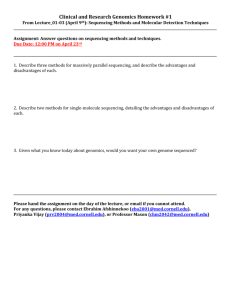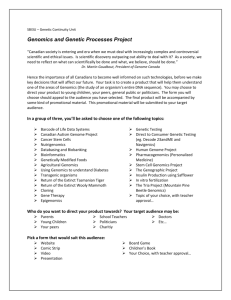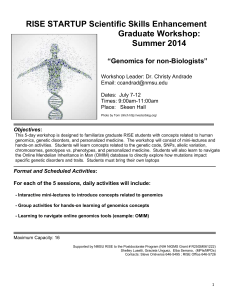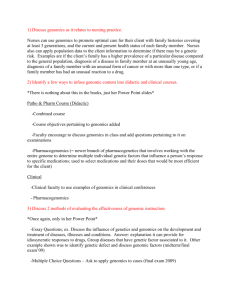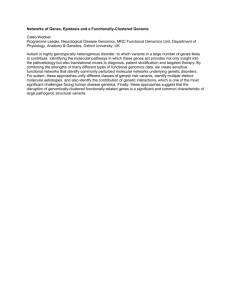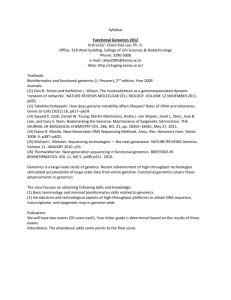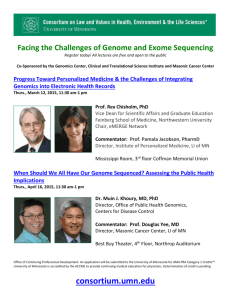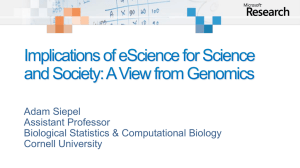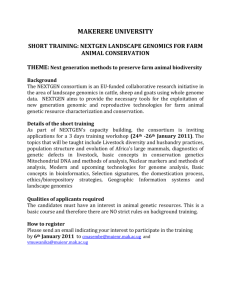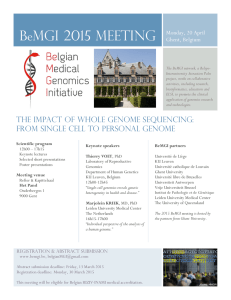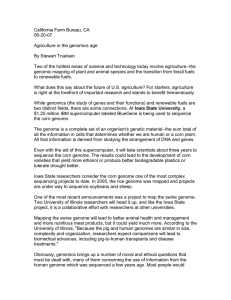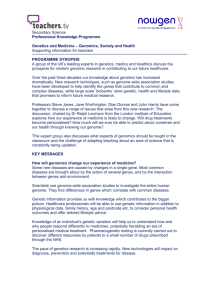Problem Set 06
advertisement
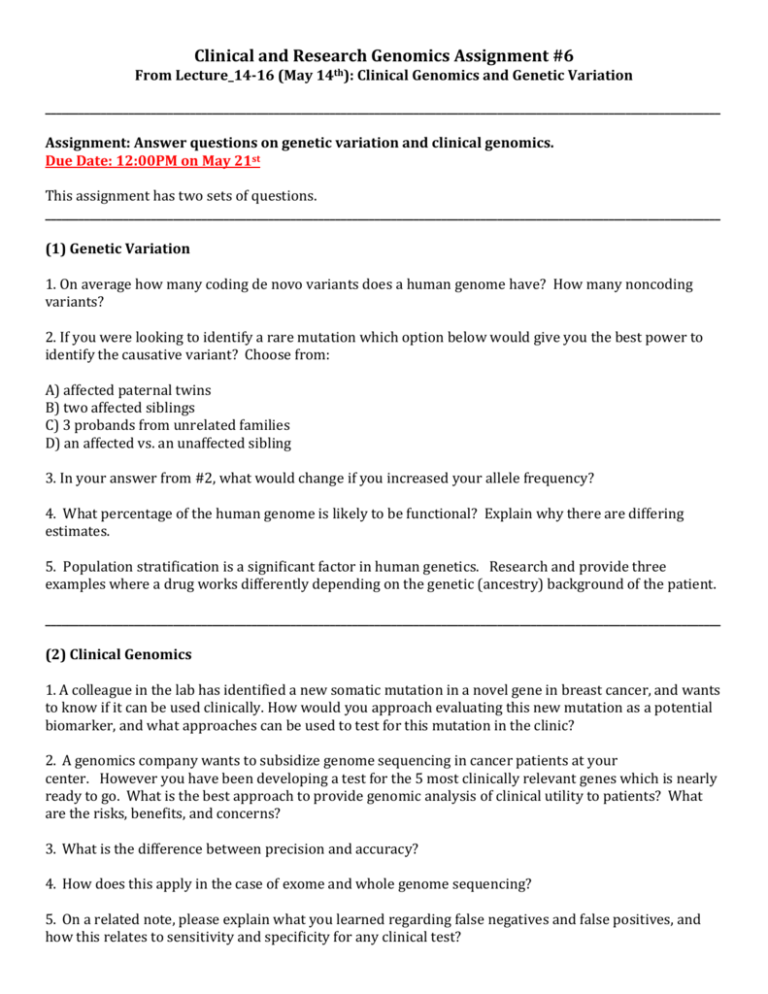
Clinical and Research Genomics Assignment #6 From Lecture_14-16 (May 14th): Clinical Genomics and Genetic Variation _________________________________________________________________________________________________________________________ Assignment: Answer questions on genetic variation and clinical genomics. Due Date: 12:00PM on May 21st This assignment has two sets of questions. _________________________________________________________________________________________________________________________ (1) Genetic Variation 1. On average how many coding de novo variants does a human genome have? How many noncoding variants? 2. If you were looking to identify a rare mutation which option below would give you the best power to identify the causative variant? Choose from: A) affected paternal twins B) two affected siblings C) 3 probands from unrelated families D) an affected vs. an unaffected sibling 3. In your answer from #2, what would change if you increased your allele frequency? 4. What percentage of the human genome is likely to be functional? Explain why there are differing estimates. 5. Population stratification is a significant factor in human genetics. Research and provide three examples where a drug works differently depending on the genetic (ancestry) background of the patient. _________________________________________________________________________________________________________________________ (2) Clinical Genomics 1. A colleague in the lab has identified a new somatic mutation in a novel gene in breast cancer, and wants to know if it can be used clinically. How would you approach evaluating this new mutation as a potential biomarker, and what approaches can be used to test for this mutation in the clinic? 2. A genomics company wants to subsidize genome sequencing in cancer patients at your center. However you have been developing a test for the 5 most clinically relevant genes which is nearly ready to go. What is the best approach to provide genomic analysis of clinical utility to patients? What are the risks, benefits, and concerns? 3. What is the difference between precision and accuracy? 4. How does this apply in the case of exome and whole genome sequencing? 5. On a related note, please explain what you learned regarding false negatives and false positives, and how this relates to sensitivity and specificity for any clinical test? _________________________________________________________________________________________________________________________ Please hand the assignment on the day of the lecture, or email if you cannot attend. For any questions, please contact Ebrahim Afshinnekoo (eba2001@med.cornell.edu), Priyanka Vijay (prv2004@med.cornell.edu), or Professor Mason (chm2042@med.cornell.edu).
